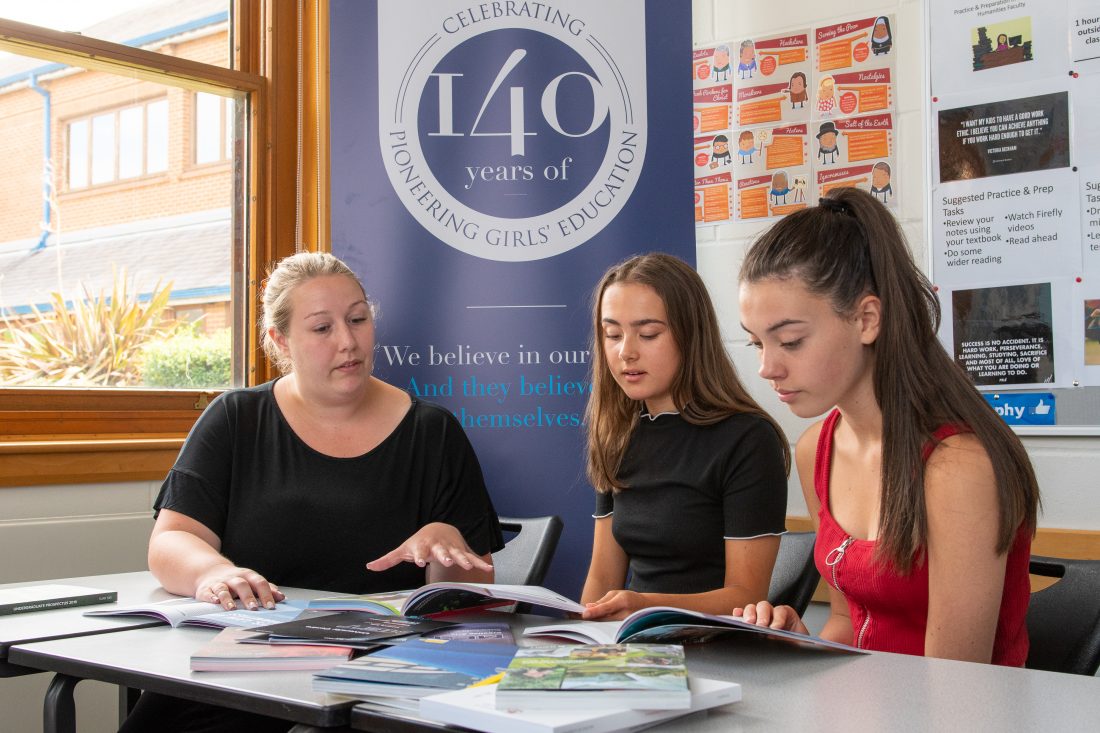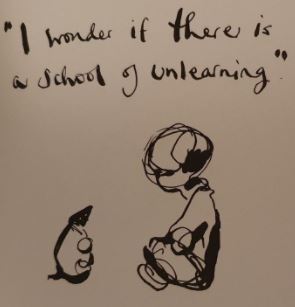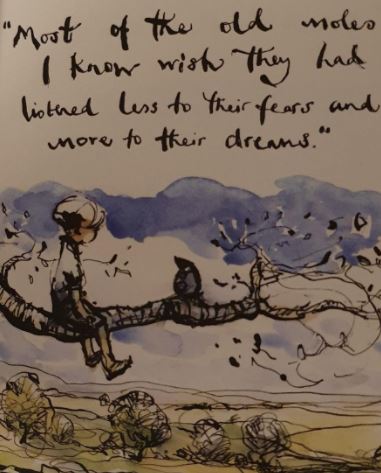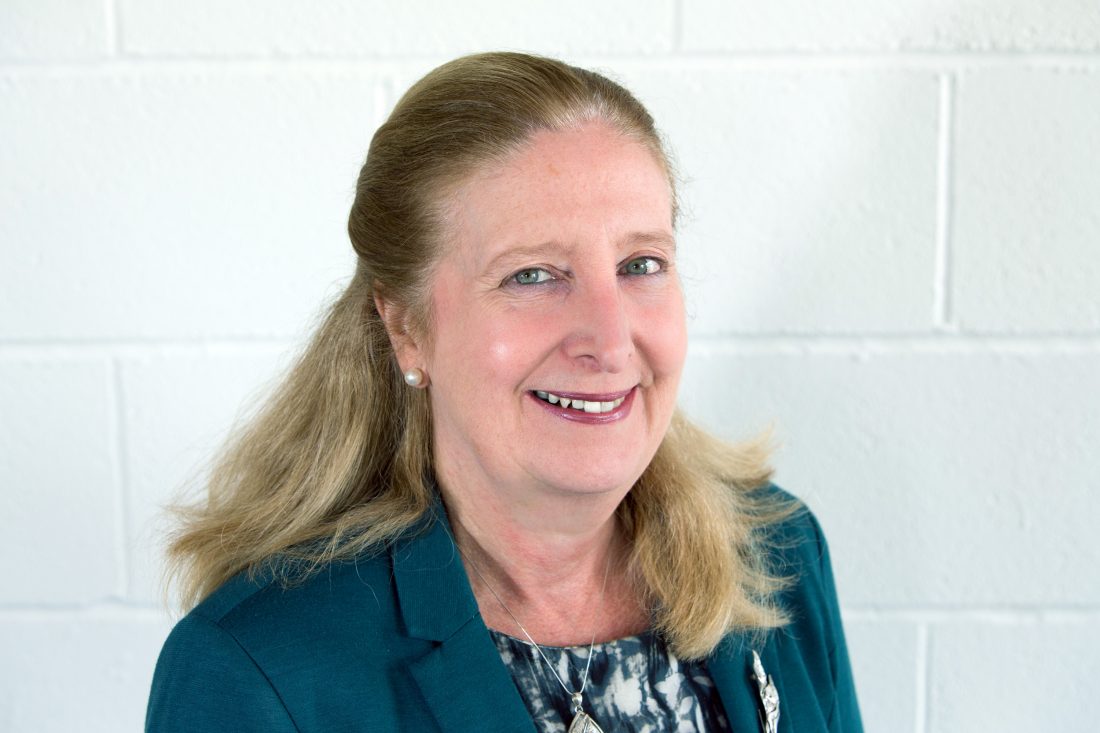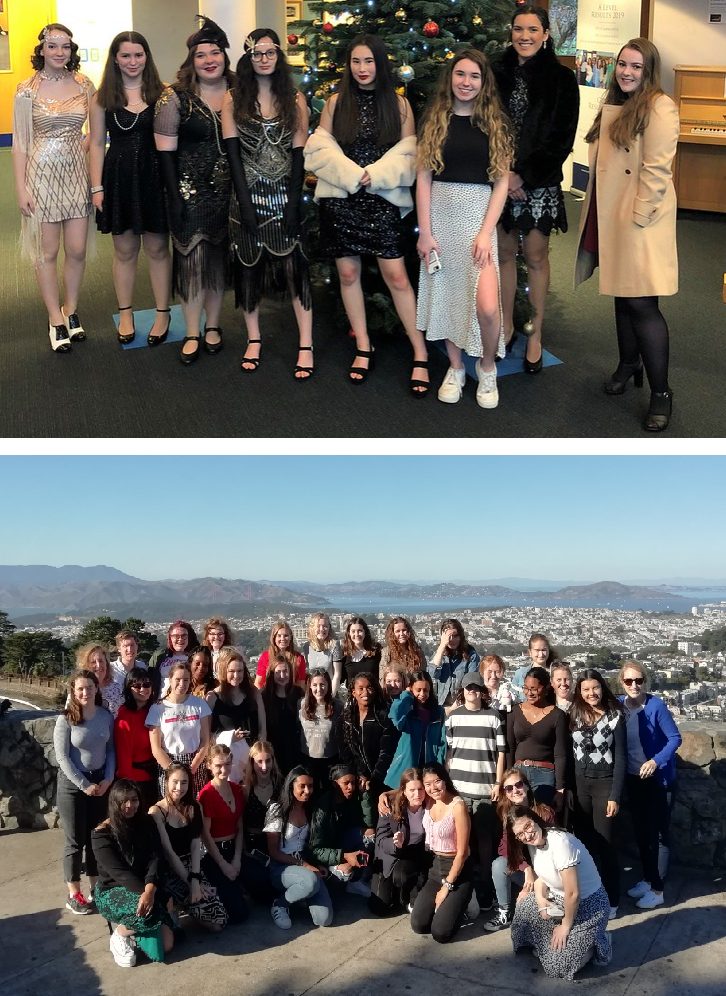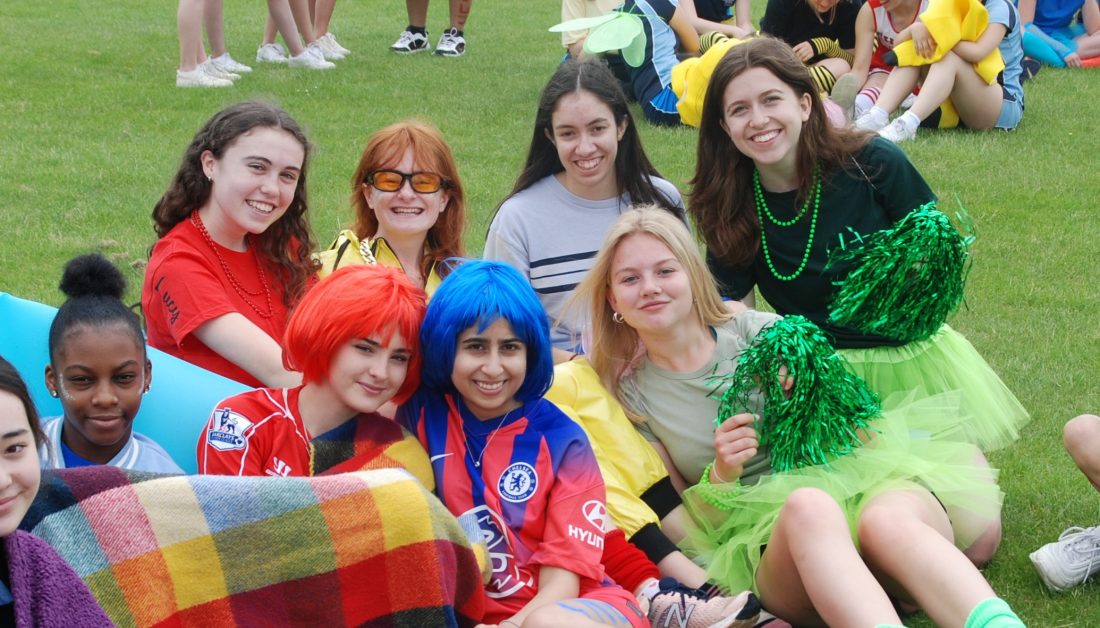Houses at Northampton High School
When I wrote about the enrichment and extracurricular programmes at Northampton High in my last blog entry, I mentioned how academic lessons in the classroom leading to public exams often dominate people’s conceptions of learning in a school. This is particularly true in a national system which prioritises, or arguably even obsesses about, examination outcomes. Sadly, this is sometimes at the expense of the wider concepts of lifelong learning and personal development that we believe should be at the heart of the school experience.
I have often said that it is the non-examined element of the curriculum at Northampton High that really gives our learners the edge. Of course, we continue to focus on developing lively and fresh pedagogy for our lessons, where pupils are given responsibility for their own development within a supportive and accepting community of learners. But in order to gain the necessary independence of thought, collaborative abilities and essential subject skills that will lead to excellent exam results, we must allow them the opportunities to find out what this means for them as individuals. This is where a vibrant extracurricular and enrichment programme is so helpful; but arguably the most important ingredient in the wider co-curriculum is our House system, as this brings the whole community together in very tangible ways.
The concept of Houses in schools reflects the ideas of family, teamwork and belonging. At the High School, pupils are members of Artemis, Demeter, Hestia and Selene; House names taken from Greek goddesses, as originally chosen many years ago in a vote by the students. While House members do not physically live and eat together as would be the case in a boarding school, the concept of spending time together and caring for each other in a special group is very much alive.
The House system globally has been given something of a boost in recent years with the Harry Potter franchise. Indeed, we were pleased to reward the winning House for the autumn term, Demeter, with a Harry Potter themed lunch in the spectacularly redecorated ‘Grand Hall’ at Christmas, including special guests Professors McGonagall and Snape! That said, where the audience in Harry Potter might have an emotional response to certain houses, such as a feeling of resentment towards Sytherin, the reality is that ours are equitable and exhibit a gentle ebb and flow over the years. For example, you may find one year that a House is successful at sports while another excels in the dramatic arts. However, over time, everyone gets the chance to excel and enjoy successes, as well as to commiserate with each other, as part of a caring and shared experience.
Our House Leader is Mr Laubscher, who took over the role from Miss Orvoen in September. Each year, Heads of Houses are elected from the Sixth Form and work closely with the House Leader to develop the programme of events and activities throughout the year. These include House Plays and Storytelling and the brand new ‘big brag’. Not forgetting, of course, the all-important whole-school Sports Day in the summer term. Regular House assemblies also take place to help gel the membership and rehearse for the various activities; these are led by the Heads of Houses, with support from teachers within each House.
When I spoke to Mr Laubsher about his thoughts on becoming House Leader, he reflected on his own school days:
“My school was in a very hot part of South Africa, often reaching 40 degrees in the daytime. I recall Sports Day at the sports field where all the parents would have gathered, fires would be lit for barbecues and pavilions decorated with House colours and posters. I was a terrible athlete but always super excited about this event. Did I realise at the time that this would be a very dear memory of my school days? Probably not. What I did feel was that I was part of a team. I belonged. On the day, it did not matter if I won or lost personally. I was happy driving home with my parents after the event, insisting that my House was better than my sister’s.”
What Mr Laubscher loves about the House system at Northampton High is how, within the huge range of activities available, every student can find a role. Perhaps they might enjoy creating props for the events, choreographing routines, making banners, participating in the sport events or writing a rap for their ‘big brag’ chant. In the process they develop relationships with other students in different year groups and feel part of a team. They feel that sense of belonging that was so important to him as a youngster. Mr Laubscher goes on to say:
“House events contribute to pupils’ understanding of their own values; teamwork, respect for others, leadership and ambition. In short, the House system teaches pupils lessons for the real world and is vital for the formation of deep-seated ties of camaraderie and identity. I know that when students start to reminisce about their school lives, it will be the activities associated with House events that will often be retold and cherished.”



